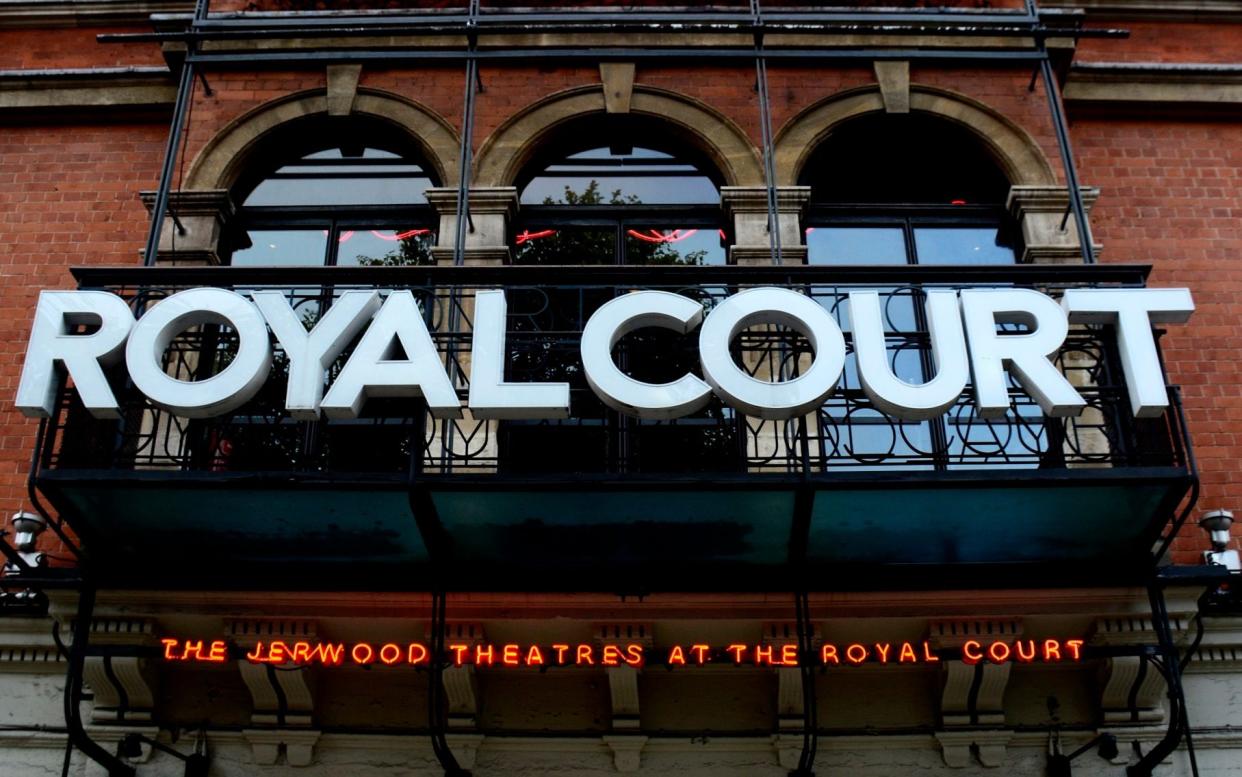Britain's arts scene is as woefully woke as ever

- Oops!Something went wrong.Please try again later.
One of the most sinister aspects of Vladimir Putin’s Russia – and that of all nasty regimes – is the weaponisation of the arts and artists. Since the invasion of Ukraine, Russian artists and their families have either faced life-disfiguring punishment for speaking out against their vile leader – as they were forced to do to keep jobs in the West – or, like former LSO conductor Valerie Gyergiev, have nestled more deeply their leader’s toxic embrace.
In Britain, we hardly expect to see mezzo sopranos and playwrights facing such choices, or indeed the state interfering in artistic freedom at all, demanding allegiance and punishing those who refuse to toe the government’s line. And we don’t see it.
And yet, to listen to the complaints of the champagne-socialist Left, you would think that Britain was indeed a hotbed of devious state interference in the arts; the new Hungary, as Guardian columnist Owen Jones put it. Just look, they say, at how Tories have stuffed quangos intended to persevere impartiality, how they installed their man Richard Sharp, a friend of Sunak’s, as Chairman of the BBC. The Tories are ideologically bullies, they say, threatening to destroy cultural outfits deemed too woke by withdrawing funding. They are nefarious propagandists, hardly better than Orban or Putin. Anish Kapoor, the artist, wrote last year of the Tories’ “sinister and systematic attempt to dismantle the Keynesian project which set up ‘arts for all’.” This just after more than a billion pounds were pledged to keep cultural institutions afloat after Covid.
If they are “sinister and systematic” in their dismantling of lefty arts institutions, then they’re jolly bad at it. A high volume of third-rate woke rubbish is still being churned out by theatres and museums – to the tune of taxpayer millions.
Last week offered yet another flummoxing spectacle for a country whose government is allegedly destroying the arts with their partisan and “systematic” bullying. The Royal Court theatre staged a show called No ID, which at first I assumed was a parody, before remembering this was also the theatre that put on Caryl Churchill’s Seven Jewish Children: A Play for Gaza, seen by many as openly indulging in anti-Semitic tropes. No ID is a one-person show starring trans man Tatenda Shamiso who “tells the story of his experience as a Black transgender immigrant in the UK. Using the songs he wrote throughout his first year on testosterone alongside letters, signatures and a whole lot of paperwork, he guides us through what it takes to validate Black and queer identities in the eyes of the law.”
If some people want to pay good money to sit through something like that, fair play. Less fair play, however, is that the Royal Court is funded to the tune of £2m per year with money from state coffers. Meanwhile, the Institute For Contemporary Art, also funded by a large grant from the government (£789,000 in 2021) is pure woke agitprop, with a whole section on its web page devoted to its commitment to “anti-racism”. The current exhibition is “an immersive multipart installation... that examines the complex logic of cultural gatekeeping within Black culture and the (mis)perception of these dynamics in a wider (white) world.”
As for the BBC, much output both on TV and radio fits a left-wing cultural agenda – some of it good, much of it less so. Many of my classical-music loving friends have stopped listening to the once wonderful Radio 3 because it’s become “all stories about ‘marginalised’ communities and music from obscure South American tribes,” as one friend keen on 19th and 20th century Russian and European music put it. She now listens to Classic FM, and mutes the ads.
The most active and powerful attempts to control culture take the form of Arts Council funding decisions. Arts Council money is a revenue stream of complex – or rather, muddy – motives. Last years saw the brutal cuts of funding of the ENO – one of the nation’s best-loved, if sporadically struggling opera houses – and the total deletion of support for the Hampstead, Gate and Donmar theatres. The idea was not to punish them for not being Tory enough (on the contrary, the Arts Councils are obsessed with diversity and ensuring the right number of “voices” are being heard). It was, rather, to serve the bizarre Tory fixation with levelling up, a dunder-headed method of doing so if ever there was one. As the ensuing uproar from audiences showed, butchering London’s world-class arts scene is not the way to serve the north.
As the whole mess showed, this government is very far from being willing or able to control culture, or shape the artistic narrative of this island. Which, when it comes to the Royal Court, is a bit of a shame. No decent tax-payer, least of all in a cost of living crisis, should be asked to fund performances about “what it takes to validate Black and queer identities in the eyes of the law”.
Like the next person, I too would rather money rained from the heavens and that there was enough to guarantee the highest quality arts while protecting total creative freedom. But money doesn’t rain down from the heavens: for many theatres and galleries and museums it comes from us, via an inefficient, cumbersome set of state processes known as the government. A certain amount of meddling is therefore inevitable, since who gets how much money – and for what – is a political question. What’s surprising is how little difference Tory meddling makes: the arts in Britain are still stuffed with the trappings of performative progressivism, which is a good sign for freedom and a bad sign for, well, everything else.

